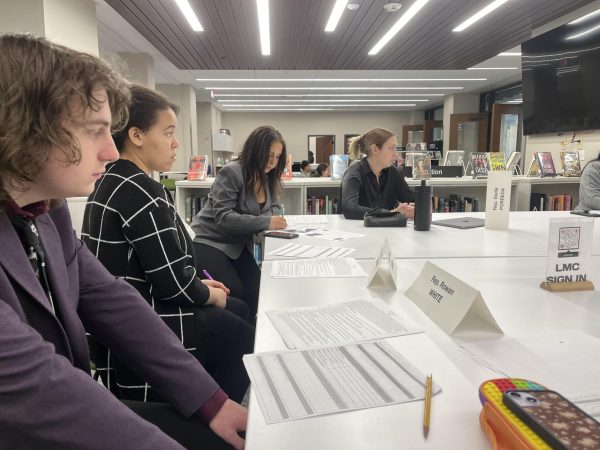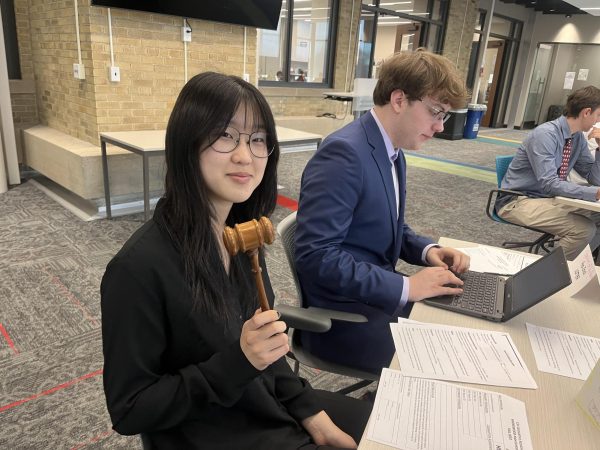
On May 2, Civics students participated in the course’s second-ever committee hearing, a simulation of the bureaucratic process by which bills are debated, amended, and voted upon. The hearing, which took place in the Library Media Center (LMC) and lasted for half of a school day, is one of two events implemented by Jesse Perez, Civics teacher, as a part of the new class.
“We got to go through processes like amending bills if we wanted to, and debating over whether they should be passed or not,” said Olivia Strath, junior. “It was very interesting because I personally never learned that much about the bill passing process.”
Civics classes met again for a full session on May 20, which constituted nearly an entire day of debate.
Throughout the semester, classes have practiced debating real bills and bills created by students in previous semesters, as well as discussing political and sometimes controversial topics, such as gun control, abortion, and the participation of transgender women in sports. In the committee hearing and full session, however, the students were debating bills they had created themselves.
“All the students are assigned the role of a representative at the beginning of the semester,” Perez said. “As representatives, they have to debate laws over the course of the class. They’ll get to research some other bills, and then they’ll finally get to create their own.”

As a part of the simulation, classes also voted for elected positions, including a minority and majority leader. Some students, such as Masha Malinkine, junior, were elected to be a part of the Rules Committee, which had an organizational role in the hearing.
“We [the Rules Committee] were in charge of breaking people up for the committee hearings [where] we had to account for a ton of factors in order to make sure that each committee group was diverse,” Malinkine said.
The committee hearing and full session were both held last semester for the first time. This semester, they were kept relatively unchanged, but Perez saw room for improvement when students expressed their concern about missing classes. The committee hearing was shortened from the whole school day to a half day, and the full session, which previously took two days, was only one.
“I recognize this is a big sacrifice and that many of the other teachers and students are giving up some of their class time,” Perez said. “So I’m trying my best to accommodate that in a way that’s not going to disrupt school too much for everybody.”
In preparation for the committee hearing, every student was required to make four short speeches, two in favor of one bill and two in opposition to another bill. Besides public speaking, Civics allows students to practice a variety of other important skills.
“They’re working on skills like writing, skills of research, skills of listening to one another, skills of being able to disagree, which is something that even for adults is hard, especially on topics that we care a lot about,” Perez said.
For Strath, the debates were a unique opportunity to engage in political discussion.
“I enjoyed debating with my classmates or with their viewpoints because I don’t feel that we get to do that a lot in school,” Strath said. “Normally, people try to not talk about any of their political beliefs, but it’s very interesting and cool to fully discuss them.”
Malinkine appreciated the chance to promote and argue issues that were important to her by participating in the legislative process.
“A way that I really benefited was by getting to choose a topic I was interested in and by getting to research and advocate for that,” Malinkine said.
Perez believes that promoting the understanding of and involvement in lawmaking is a vital part of being an informed citizen.
“Whether or not you’re political, the law governs essentially every part of our society,” Perez said. “If we’re not understanding the process, if we’re not part of the decision making, then somebody else is making those decisions for us. I want to inform students and empower them to be able to participate in our government as any great citizen should.”
